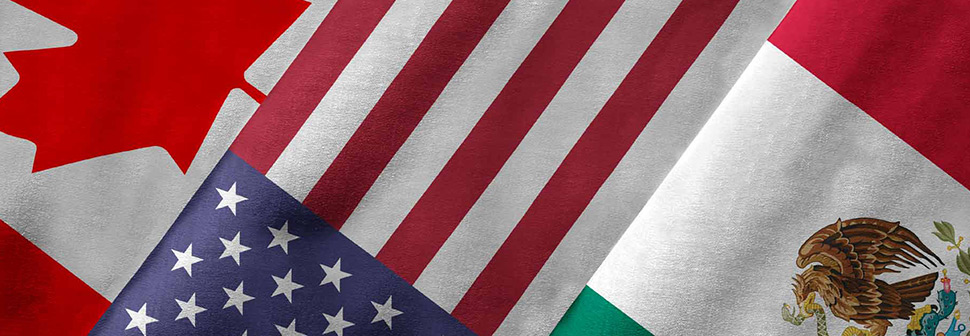Donald Trump vs. NAFTA: A future that remains unknown


What was once called “termination”, today is referred as “renegotiation” and everybody seems happy about it. After some strong words from Trump during his presidential campaign, the ending of NAFTA –with United States wanting to pull out– seemed imminent. Now, 100 days IGNORE INTO his presidency, the terms have changed.
Luckily, Donald Trump recognized –or was forced to– the importance of the North American block (Canada and Mexico) for the U.S. economy. According to the Washington Post and Los Angeles Times, Wilbur Ross, Secretary of Commerce, showed Trump how much U.S. exports depend on Canada and how jobs rely heavily on trades with Mexico.
However encouraging as it may seem, the future of NAFTA still relies on the political intentions of Trump and, sometimes, his whims. And there’s a long way before Mexico, Canada and the U.S. can reconcile Trump’s intentions with the regional economic needs. Let’s not forget that, while Trump agreed to negotiate NAFTA, he may also follow through with his words –or, rather, tweets-: “[…] if we do not reach a fair deal for all, we will then terminate NAFTA”.
The question is, what can be done to improve NAFTA and, at the same time, please the nationalist ideals of Donald Trump?
With negotiations starting as soon as August, it’s important to think big, but also carefully. Analysts Mack McLarty, White House’s Chief of Staff during the ClIGNORE INTOn administration, and Penny Pritzker, Secretary of Commerce for Obama, argue that Trump’s government should forget about increasing tariffs or taking any measure that would directly affect the U.S. market. Instead, they suggest a couple of ideas that would benefit the three countries. For example, include more industries that are important to the nation’s economy, strengthen labor and environmental standards, and tighten regional security and immigration.
Even though the ideas of McLarty and Pritzker appear reasonable and coherent with the needs of the United States, we can’t forget about other political intentions. For example, Trump’s administration doesn’t seem to be too keen on modifying environmental standards for the benefit of the planet. In fact, they would outright dismiss them and focus more on immigration and labor standards. After all, one of the biggest complains from Americans about NAFTA is that it caused a considerable loss of manufacturing jobs within the continental U.S.
While it seems that the U.S. is in an empowering position, Republicans don’t want to see any economic sector suffer. In the meantime though, it also depends on the opinion of Canada and Mexico. There’s still a long road ahead and, as Wilbur Ross stated, the talks will be “long and complicated.”
LatinAmerican Post | Juan Sebastian Torres
Copy edited by Susana Cicchetto





